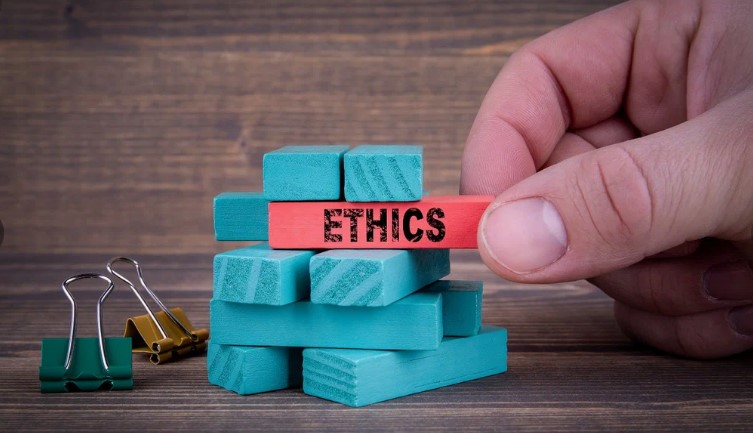The Oil Industry’s Ethical Dilemma: Sustainability or Profit?
Ethics in Petroleum Engineering Let’s face it—petroleum engineering is at a crossroads. The world still runs on oil, but climate change concerns are louder than ever. While oil companies rake in billions, critics argue that the industry should be doing more to prioritize sustainability.
But here’s the big question: Are petroleum engineering schools preparing students for a responsible future, or are they simply training them to maximize profits?
If you’re considering a career in petroleum engineering (or already in the field), this is something you can’t ignore. The way universities teach the next generation of engineers could define the future of energy—so let’s dive into how different schools handle the balance between sustainability and profit-driven education.
The Traditional Approach: Profit-First Mentality
For decades, petroleum engineering programs have focused on one thing: extracting oil and gas as efficiently as possible. Many of the industry’s top schools have close partnerships with ExxonMobil, Shell, BP, and Chevron—which makes sense, considering these companies fund a lot of research and hire most graduates.
But here’s the catch: These partnerships often shape the curriculum. If a university is heavily funded by oil giants, are they really going to push students to challenge industry norms? Probably not ethics in petroleum engineering.
Examples of Profit-Driven Education
- Texas A&M University: One of the top petroleum engineering schools, Texas A&M has strong industry ties. While they do teach sustainability, the focus is still largely on traditional extraction techniques.
- University of Oklahoma: Their petroleum engineering program is highly respected, but critics argue that sustainability is treated more as a side topic than a core principle.
- Louisiana State University (LSU): With its proximity to the Gulf of Mexico, LSU trains students for offshore drilling but offers limited coursework on renewable alternatives.
Now, don’t get me wrong—these schools aren’t ignoring sustainability entirely. But in many cases, it’s more of an afterthought than a priority.

The Shift Toward Sustainability-Focused Programs
While some universities still focus on maximizing oil production, others are taking a different approach. A growing number of petroleum engineering programs are emphasizing ethical energy practices, carbon capture technology, and renewable energy integration.
Top Schools Leading the Sustainability Movement
🌍 Stanford University: A Game Changer
Stanford’s Energy Resources Engineering program is one of the most forward-thinking in the country. Instead of just focusing on oil extraction, students learn about:
✔ Carbon capture & storage: reducing emissions from fossil fuels
✔ Renewable energy alternatives: exploring solar, wind, and geothermal solutions
✔ Environmental impact assessments: teaching students to think beyond profit margins
📌 Why it matters: Stanford is proving that petroleum engineers don’t have to be “just” oil extractors—they can be energy problem-solvers.
🔋 University of Texas at Austin: Blending Tradition with Innovation
UT Austin is home to one of the best petroleum engineering programs in the world. But unlike some traditional oil schools, they’re actively incorporating sustainable energy courses into their curriculum.
They offer:
✔ Sustainability-focused electives in petroleum engineering
✔ Partnerships with renewable energy companies alongside oil giants
✔ Research on reducing methane leaks—a major issue in oil drilling
📌 Why it matters: UT Austin is finding a middle ground, ensuring students are prepared for both oil careers and the shift toward cleaner energy. Also Read>>>
⚡ Colorado School of Mines—Beyond Just Oil
Known for its strong petroleum engineering program, Colorado School of Mines is now focusing heavily on carbon management and clean energy integration.
They emphasize:
✔ Ethical decision-making in energy production
✔ Technology-driven sustainability solutions
✔ Hydrogen and geothermal research alongside petroleum
📌 Why it matters: They’re showing students that petroleum engineering doesn’t have to be all about fossil fuels—it can also be about innovation.

Are Schools Doing Enough?
Here’s the reality: The oil industry isn’t disappearing anytime soon. Like it or not, petroleum engineers will still be needed for decades. But the way they’re trained will determine whether the industry becomes part of the climate solution—or remains a problem.
Some schools are taking the lead in ethically responsible petroleum engineering, while others are still focused on traditional extraction methods and corporate funding. The real question is: Will universities step up and prepare students for a more sustainable future?
What This Means for Future Petroleum Engineer
If you’re planning a career in petroleum engineering, you have a choice:
✅ Do you want to follow the traditional oil industry path—focusing on drilling and maximizing profits?
✅ Or do you want to be part of the change—helping the industry transition toward cleaner, more ethical energy solutions?
The good news? You don’t have to choose one or the other. The best petroleum engineers of the future will be those who can:
✔ Understand how to extract oil responsibly
✔ Innovate with carbon capture and emission reduction
✔ Adapt to the world’s growing need for renewable energy integration
If you’re applying to petroleum engineering schools, look beyond rankings and job placement rates. Ask these critical questions:
- Does the school emphasize sustainability in its petroleum engineering curriculum?
- Are there courses on carbon capture, renewable energy, or ethical decision-making?
- Does the university have partnerships with both oil companies and clean energy firms?
The petroleum engineers of the future won’t just be drilling for oil—they’ll be shaping the entire energy landscape. Which side of history do you want to be on?
Final Thoughts: Ethics Matter in Petroleum Engineering
It’s easy to assume that petroleum engineering is just about oil and gas, but the truth is the field is evolving. Some schools still push the traditional profit-first model, while others are leading the charge in sustainability and responsible energy production.
At the end of the day, the choice isn’t just up to universities—it’s up to students like you. The decisions you make about where to study and what to prioritize in your career can shape the future of energy.
So, what do you think? Should petroleum engineering schools be doing more to promote sustainability? Let’s discuss in the comments!
🚀 Your thoughts matter—drop a comment below!



